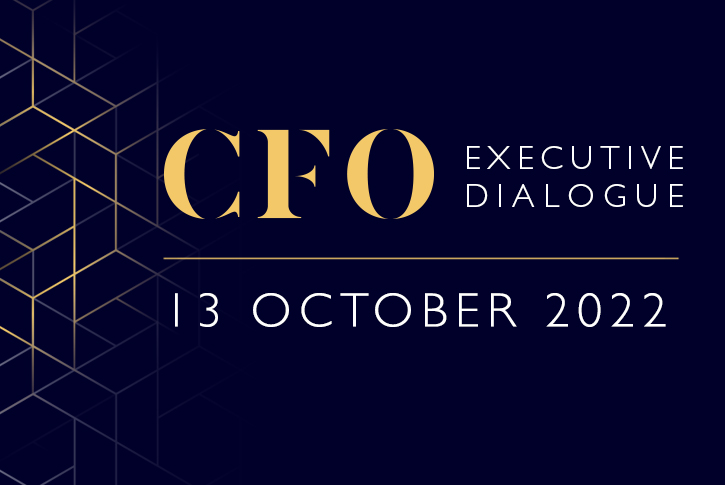What’s in store for October’s CFO Executive Dialogue
Join us on the October 13 to transform your organisation by turning potential risks into profits and protect your company from losing revenue in a time of uncertainty
Join us on the October 13 to transform your organisation by turning potential risks into profits and protect your company from losing revenue in a time of uncertainty

Inflation, supply chain and labour costs continue to rise while boycotts of Russian oil and gas have triggered a volatile energy market that raises further questions about the transition to renewable energy.
Furthermore, next year will present new challenges and complexities for businesses as the Bank of England forecasts an impending recession in the UK.
How the CFO leads a multi-generational workplace will also continue to present new challenges and technology will no doubt continue to drive efficiencies. These developments will put new demands on the CFO and create new opportunities.
We’ve created CFO Executive Dialogue a free, virtual event, to provide a space for FDs/CFOs to focus on the challenges they’re currently facing whilst co-creating an agile finance strategy.
CFO Executive Dialogue is taking place on 13th October 2022 and will be broken into a number of interactive sessions, meaning you can select the ones right for you and build your own agenda, whilst being flexible with your time.
The CFO Executive Dialogue will provide a one-stop platform for finance leaders to build a roadmap to manage the myriad of challenges facing them, helping them to become agile during uncertain times by leading and transforming their finance workflows.
Register for your free ticket here.
Contingency planning: How inflation might unfold over the next three years?
Navigating through inflation, volatile markets, war, disruptive supply chains and the great resignation have become high priorities for the CFO and senior finance leaders. The CFOs role in creating a framework for how their companies must adapt their operations in a time of uncertainty by adjusting their focus and strategy for what lies ahead is paramount. This session will focus on the macroeconomic trends to help you prepare for a recession and build long term resilience.
(Digital Incubator) Overcoming supply chain difficulties – A CFOs perspective
Supply chain disruption has become a global concern. A shortage of chips due to Asian factories being closed and the Russia-Ukraine war affecting global trade have both increased the cost of goods internationally. Most companies focus on how to increase the robustness of their inbound supply chains, but the most important and urgent task for the CFO is securing and maximising the organisation’s long-term profitability by managing the effect on their customers.
Incubator solutions
ISSB’s consolidation of ESG reporting frameworks: What you need to know
Sustainability Reporting is at the final stage with proposed amendments to set the IFRS Sustainability Standards. The role of the CFO in steering the ESG agenda going forward will be critical. The CFO is the reporting data gatekeeper within their organisation. This role will transform as the CFO becomes responsible for reporting on far more than just financials.
Incubator solutions
To find out more information and to register for your free ticket, click here.